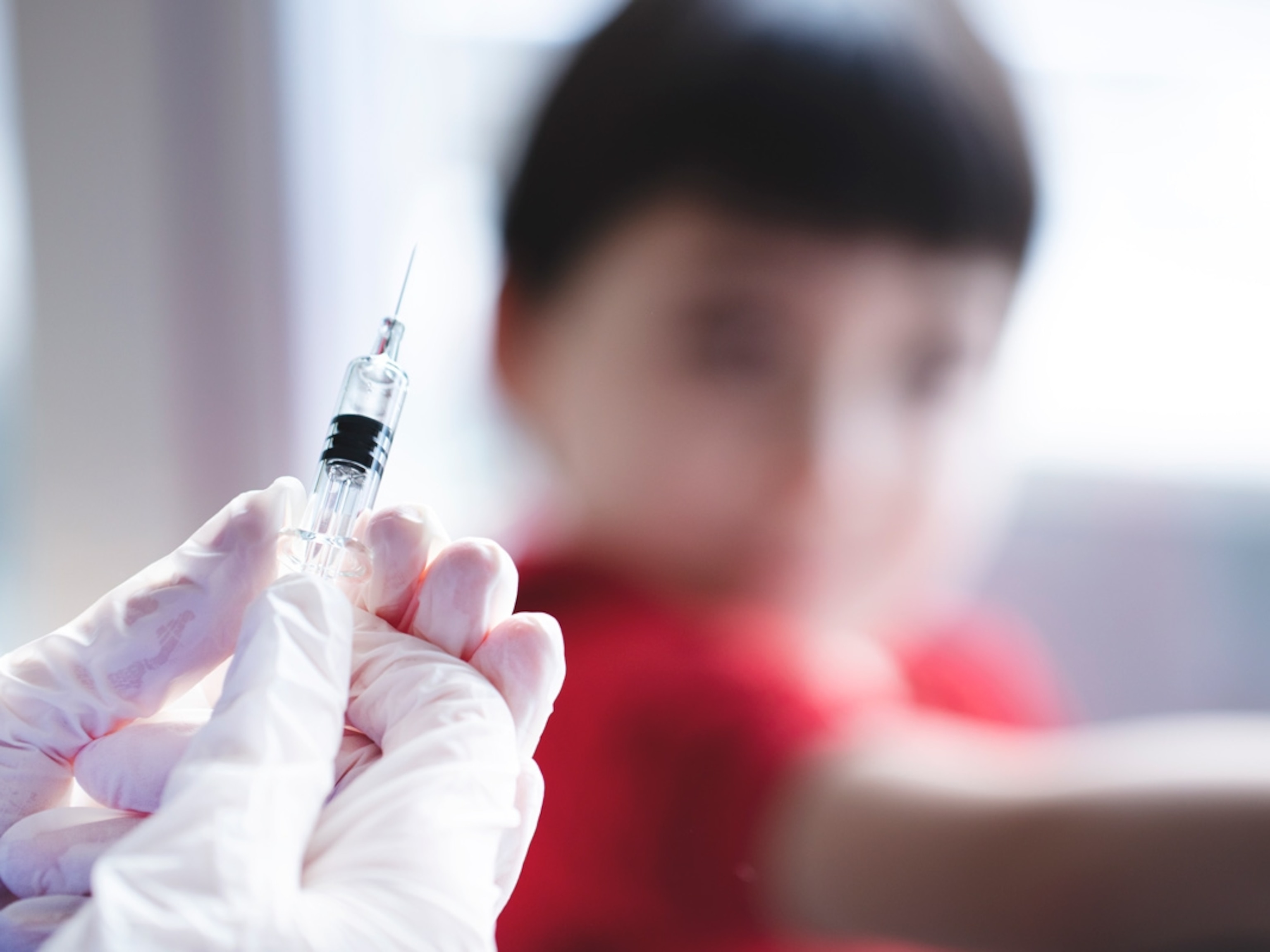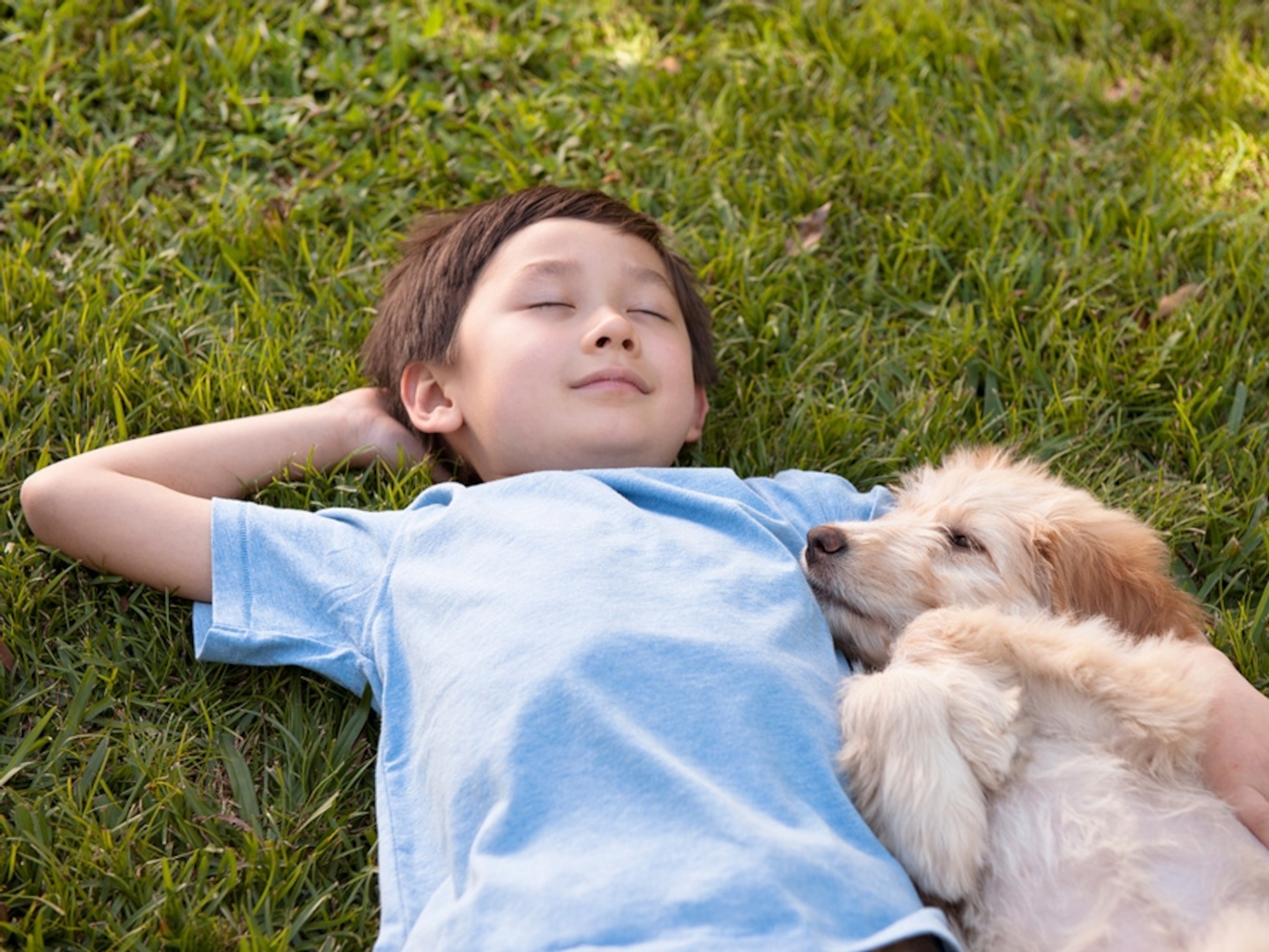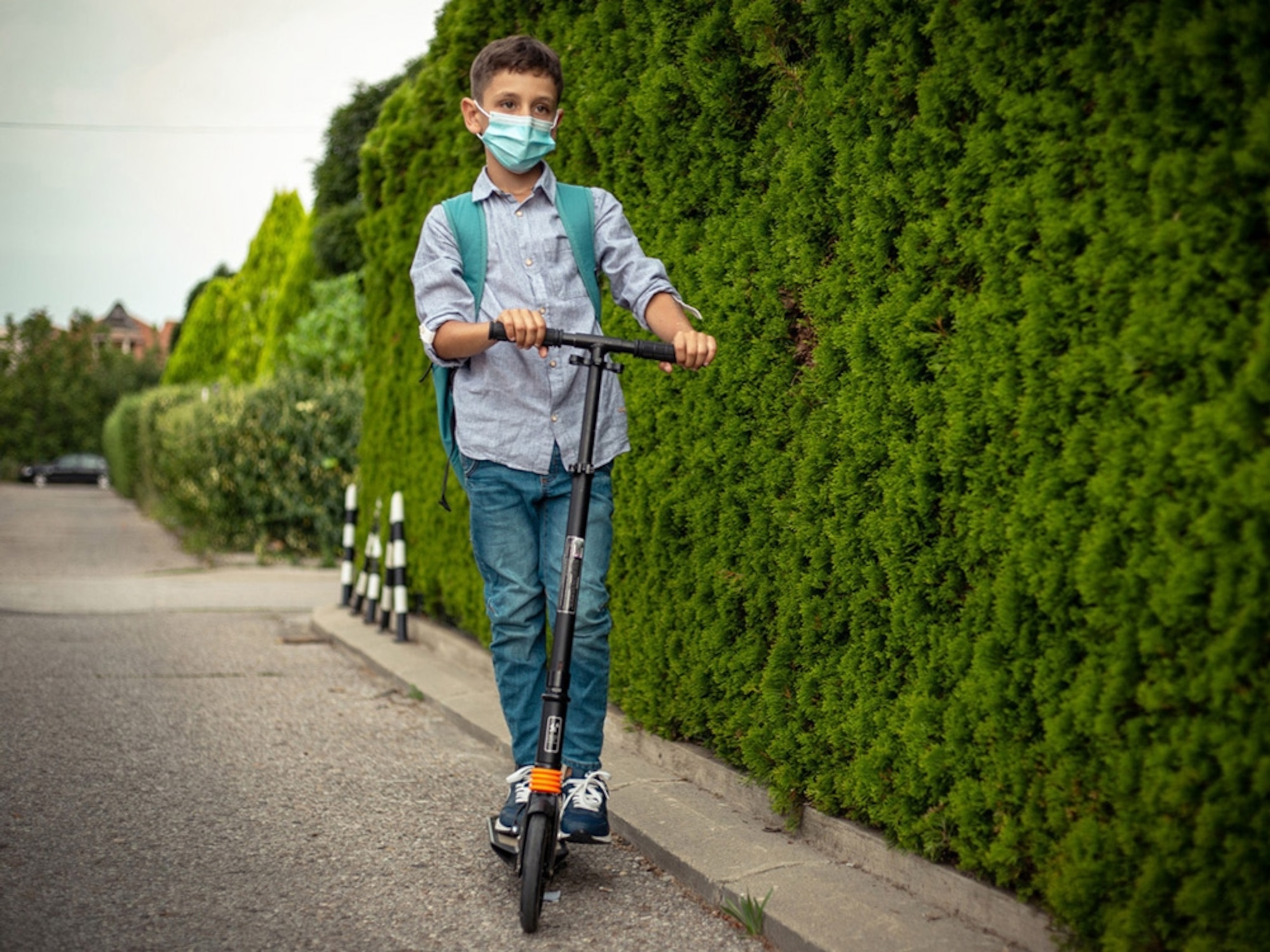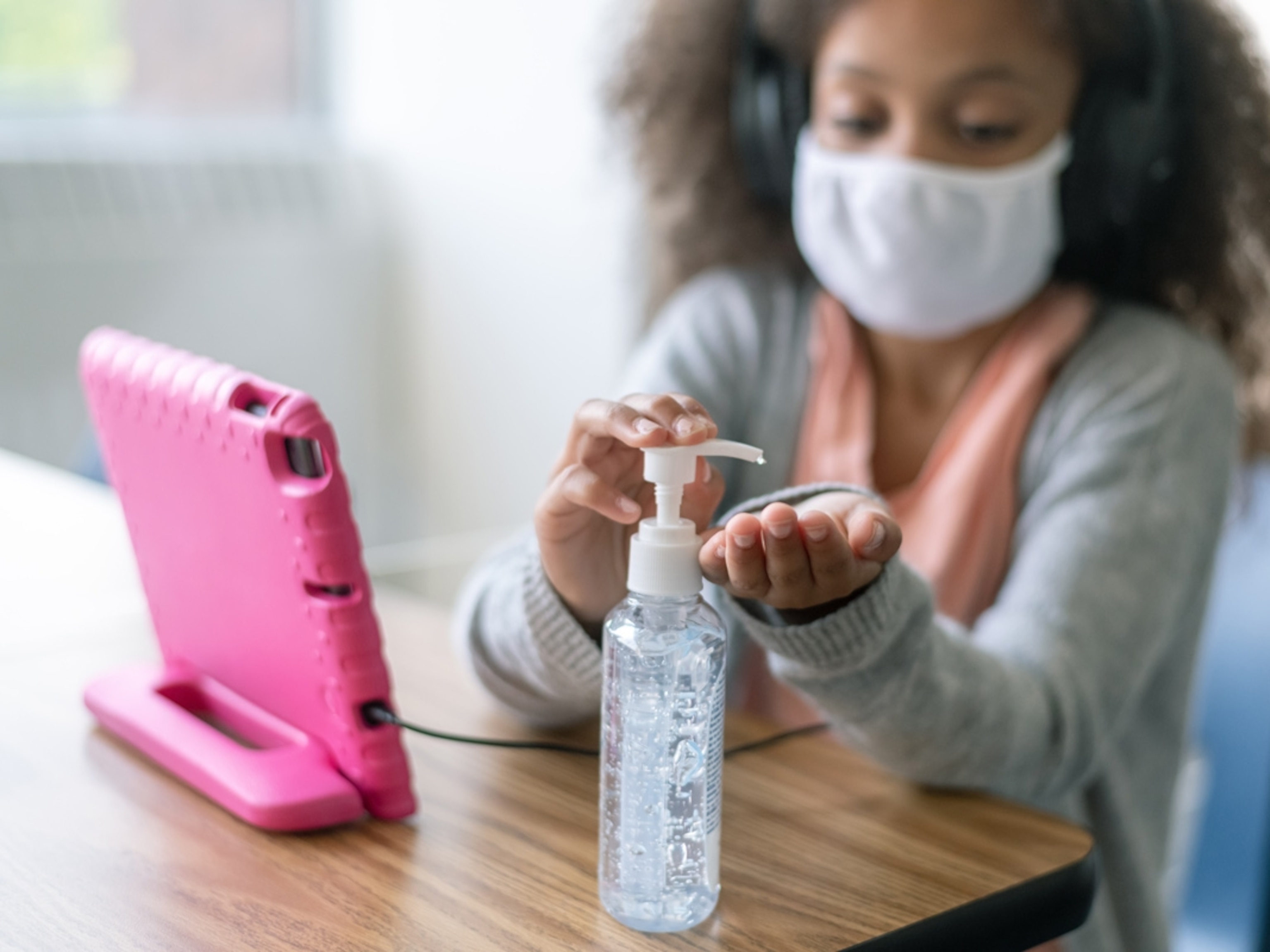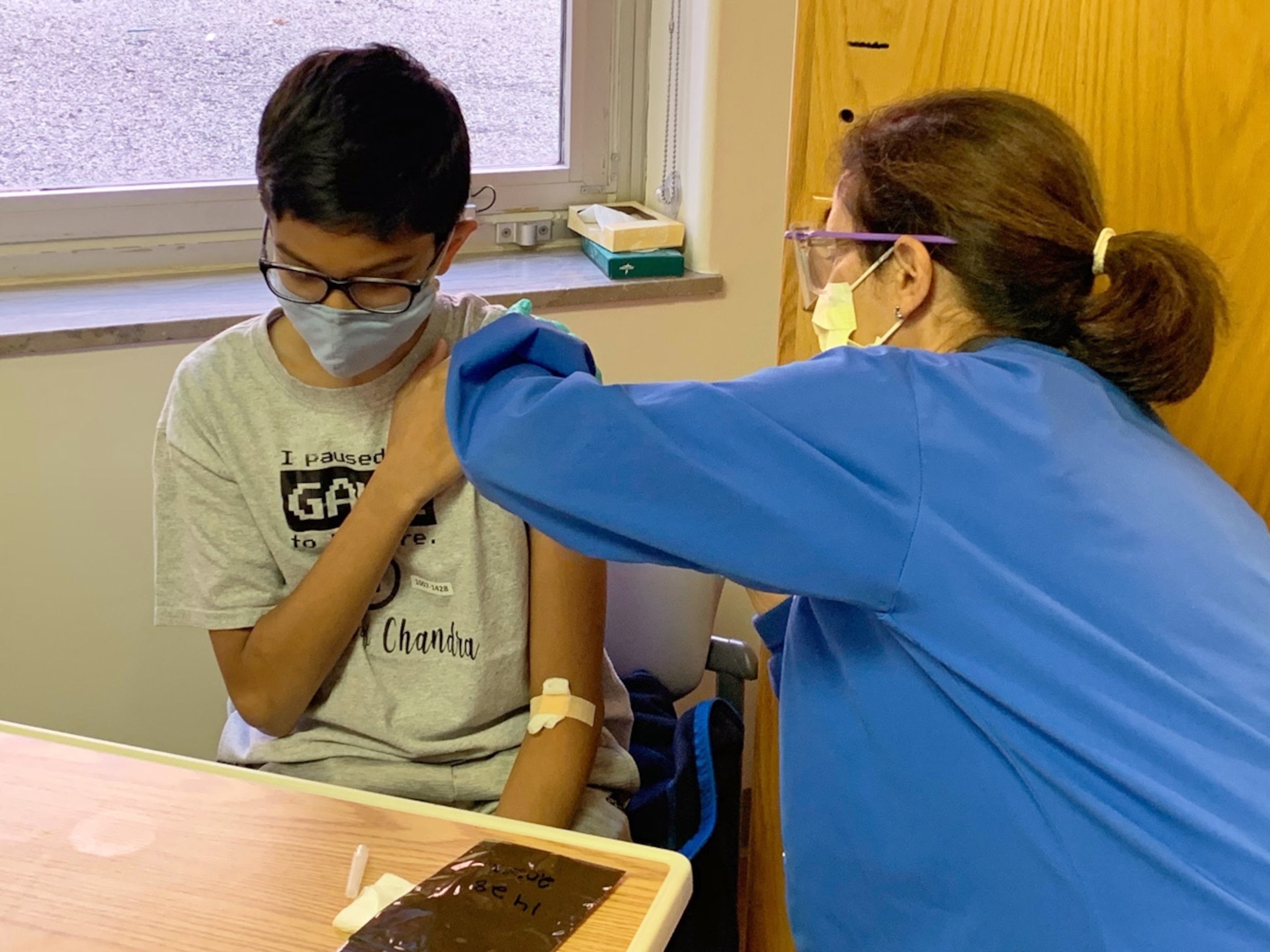
Vaccines for kids are coming. Here’s what that might mean for your family.
We’re so close—but precautions are still necessary to keep everyone around you safe.
Updated May 11, 2021, following the FDA announcement authorizing the Pfizer-BioNTech coronavirus vaccine for emergency use in 12- to 15-year-olds.
Julia Olmstead knows her son Brodie has not had the year most teenagers dream about. Instead of the newfound independence teens often have, he’s had the exact opposite.
“This whole year he’s been forced to be with his family 24 hours a day,” says Olmstead, who lives in St. Paul. “We’ve been super strict about COVID precautions. All winter he didn’t see any friends.”
That’s why she’s excited by the news that the FDA announced it has authorized the Pfizer-BioNTech coronavirus vaccine for emergency use in 12- to 15-year-olds; other vaccine makers will likely follow soon. Plus, the results of vaccine trials on younger children are expected to be made public this summer.
But for many families, the possibility of a post-vaccine world comes with lots of questions: What will school look like? What if your older child is vaccinated, but your younger one isn’t ? How do you deal with families who might not be vaccinated?
“The fact that vaccines are available this quickly—and hopefully soon for children—is really exciting for families, but the re-emergence that comes with that also opens up a lot of anxiety and stress,” says Janine Domingues, a clinical psychologist at the Child Mind Institute. “There are lots of questions about what school will be like, how kids might re-engage with peers, and how quickly to open ourselves back up to socializing.”
Here's what that post-vaccine world might look like—and how you can help your child adjust.
Re-engaging kids with families and friends
For a fully vaccinated household, in which all kids are old enough and have received a vaccine, health experts say you can broaden your social circle and spend time indoors with other fully vaccinated households. But after a year of isolation, Domingues says these children will likely be anxious about seeing people they haven’t seen for months. They might be shy, uncertain about how to engage, and still have anxieties about getting sick.
Confront the anxieties head on, she suggests, and tell your children that if they’re vaccinated and their friends are vaccinated, it’s safe. “The rules say we can be together,” she says. “That allows them to absorb that information and understand the steps going forward.”
For any child’s first outing—whether they’re social butterflies or reserved—Domingues suggests dipping a toe in a social gathering pool.
“Don’t do a giant family reunion or get-together with all their friends the first time around,” she says. “Start with just an hour and do a specific activity at a specific place, so there’s structure and your child will know what to expect.”
Then, if kids seem excited, allow them to expand their circles safely at their own pace, seeing more vaccinated friends for longer periods of time. If they still seem nervous or scared of getting sick, go more slowly.
Domingues adds that parents can practice with their kids what to say when meeting a vaccinated friend after a long absence. She suggests openers like, “Hi, I haven’t seen you in a long time, what do you like to play with these days?” And continue to reiterate why it’s safe.
“Social interactions can be exhausting,” she says. “We want to be setting up kids for success.
Different rules apply for families with both vaccinated and unvaccinated children in the home, because health experts say that it’s possible, though unlikely, that vaccinated people can still transmit the disease. That could be trouble with a younger, non-vaccinated child in the home.
Alessandro Sette, a professor of immunology at the La Jolla Institute for Immunology, says that even though clinical trials for younger kids are progressing rapidly, families still need to be cautious and not socialize in pre-pandemic ways until all family members are vaccinated.
“We’re on the cusp of significant levels of immunity, but we’re not there yet,” he says. “As younger kids can get vaccinated, at that point it’ll be totally safe to be more social.”
What vaccines mean for schools
Using the next few months as a way to re-socialize kids who will likely be vaccinated soon is a great way to help them transition back to full-time, in-person school—something that’s looking very likely for many students in the fall.
“I would encourage parents to do a few social things before schools reopen, like putting kids in week-long camps for a few hours a day,” Domingues says. “That sets up how to get back into a routine and follow a structured day.”
Teachers will need that support as children socially reacclimate to in-person class; the possibility of vaccinated students will help the transition as well, says Randi Weingarten, president of the American Federation of Teachers.
“Teachers will feel better knowing more and more kids will be vaccinated,” she says. “The hope is that it will help school return fully, without hybrid learning.”
Alison Chin Travis, a teacher in Boulder, says even though most teachers have already been vaccinated (a recent survey of AFT members showed 81 percent were either vaccinated or had an appointment to get vaccinated), extending this to children will hopefully mean schools will run more smoothly, with less need to shut down and quarantine.
One issue that could affect newly in-person classrooms is whether kids will be required to be vaccinated. Teachers aren’t usually required to prove immunization against viruses such as measles—but most students are.
Because vaccines likely won’t be available for all students by the time school starts in the fall, officials aren’t making that a requirement for children to return to class. And though formal discussions about a teacher requirement haven’t started, opinions are split. Weingarten said a recent survey of AFT members showed 43 percent thought school staff should be vaccinated, compared to 50 percent who said they shouldn’t. Meanwhile, 46 percent said students should be required to be vaccinated; 44 percent disagreed.
Even if some kids are vaccinated, others likely won’t be. So teachers fully expect another start to the school year with masks and social distancing precautions in classrooms.
Talking about vaccines with other parents
According to CDC guidelines, if everyone in your house has been vaccinated, including all your children, then it’s safe for your kids to play with one non-vaccinated friend. Your vaccinated household can also spend time indoors without masks with one household that's not vaccinated. So, a vaccinated family gets only one non-vaccinated family in their pod. But if a child or other family member hasn’t been vaccinated, then it’s not necessarily safe for your family to interact with unvaccinated people.
And that means parents will likely need to have awkward conversations with other parents.
Daniel Post Senning, great-great grandson of Emily Post and co-author of Emily Post's Etiquette, says simply acknowledging the sensitivity goes a long way.
“Acknowledge it’s a personal and private question that the other person may not want to answer, and offer reasons for why you’re asking,” he says. “You can say, ‘I don’t know if you’re comfortable sharing, but we’re trying to figure out whether we can get together with people based on whether they’ve been vaccinated, and so we were wondering if your family has had their vaccines.’”
Domingues agrees that transparency can make those conversations easier.
“Start off by saying where you are: ‘We’ve been vaccinated—where are you in that process, and what are your thoughts?’” she says. “If the other family says they aren’t doing it, then it’s up to you as a family to talk about what you’re comfortable doing.”
That means conversations not just with your own friends, but with parents of your children’s friends, too.
Senning also recommends working with kids about how to talk to their friends about vaccinations.
“Teens aren't thinking far into the future, and their risk assessment is developing in a different way,” he says. “So being explicit as a parent about the long-term consequences is important. Say something like, ‘The risk to you is small, but let’s think about people in our family.’”
Even as the future feels brighter, Domingues urges vaccinated families to follow doctors’ advice about safety precautions, like wearing masks and social distancing, especially indoors.
“Vaccinations are making us feel hopeful, but it’s still a process,” she says. “Just because we get vaccinated doesn’t mean we can do all the things we did before right now. It’s a balance—but there’s now more flexibility and wiggle room.”
